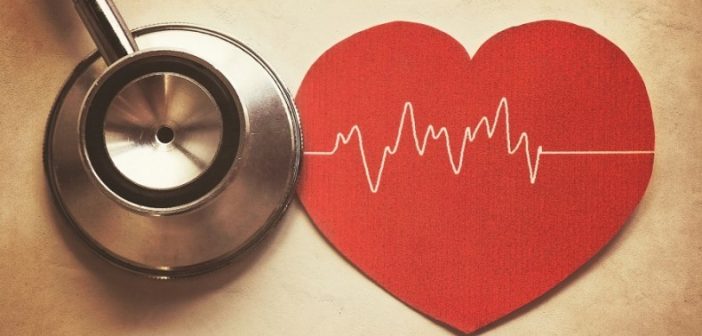Almost everyone has seen the Activia yogurt commercial featuring Jamie Lee Curtis, who talks about the wonders of probiotics. (Or, you’ve seen the Saturday Night Live sketch poking fun at the topic’s awkwardness.) You know probiotics help regulate the digestive tract, but what about prebiotics? Don’t let the similar names confuse you—probiotics and prebiotics are two different things.
Prebiotics and Personal Health
You might not like the idea of living bacteria and yeasts having a home in your body, but they are beneficial to your health. Also called gut bacteria or gut flora, this bacteria has the responsibility of aiding your digestive system. Prebiotic compounds appear in food, especially in the form of fiber or carbohydrates that cannot be digested by you but feed your gut flora instead. These gut bacteria or yeast work to keep your digestive system functioning normally, and protect it from harmful bacteria.
Understanding Prebiotics vs. Probiotics
Many people confuse prebiotics and probiotics because they have both similar names and functions. Probiotics are living bacteria found in food or supplements that increase the number of good bacteria found in your digestive system. These include fermented or natural food items, such as kimchi, pickled vegetables, and sauerkraut.
Prebiotics, on the other hand, come from fiber that acts as food for the pre-existing bacteria. Upon consumption, they grow in number and thrive to keep your digestive system healthy. Think of it as a fertilizer that nourishes the current bacteria. You can find them in abundance in bananas, berries, legumes, and onions.
Health Benefits of Getting More Prebiotics
Consuming and maintaining good bacteria is crucial to staying healthy. An article published in Harvard Men’s Health Watch shows that a balanced high-fiber diet can prevent many common diseases. Prebiotics provide the fiber in your diet, and there are plenty of additional benefits that prebiotics offer, for example:
- Relieves Constipation– Microbial imbalance is the main reason for chronic constipation. Prebiotics may contain bifidobacteria, which improves intestinal mobility and increases blood flow to the region; therefore, relieving constipation.
- May Lower Cholesterol– Prebiotics contain short-chain fatty acids, or SCFA, which the liver quickly absorbs and metabolizes to lower blood pressure. They absorb fats from the lower intestine and, combined with its binding effects, decrease cholesterol levels. A study by the NCBI shows that cholesterol absorption decreases, and enhanced cholesterol gets discarded and appears in feces.
- Prevents Colorectal Cancer– Prebiotics modify the composition of colorectal flora and can work to prevent colorectal cancer. According to a study, the SCFA and stimulation of gene expression are responsible for the anti-cancer results.
- Encourages Weight Loss- An imbalance of gut microbiota and causes inflammation and alters a body’s metabolism and method of absorbing fats. It causes obesity, and prebiotics strengthens your gut bacteria and reduces inflammation. Apart from this, it may improve metabolism and aid in weight loss.
- Improves the Absorption of Certain Minerals– A study by the NCBI shows that the SCFA in prebiotics can acidify the gut flora, leading to better absorption of minerals. It includes minerals such as calcium and magnesium. Also, it improves water absorption and sodium regulation in the body.
How to Increase Your Prebiotics Intake
There are many ways to increase your prebiotic intake, including:
- Consume More Foods that Naturally Contain Prebiotics– There are plenty of foods that contain prebiotics. Many people prefer to get their daily dosage naturally and include them in their diets. These foods are high in fiber and the perfect feed to provide the gut flora. Some of these include chicory root, Jerusalem artichokes, garlic, onions, asparagus, bananas, cocoa, and flax seeds.
- Take Prebiotic Supplements– Supplements are a great way to meet your nutritional content without always being concerned about balanced meals every day. They come in the forms of pills, powder, and gummies. However, many people prefer to use powders because they are easy to incorporate into drinks. Drinking prebiotic collagen coffee is a great way to reap the benefits of both supplements.
Don’t Wait To Strengthen Your Gut
Many people wait until they experience symptoms of poor gut health. These can include symptoms, such as insomnia, fatigue, diarrhea, and skin irritation. The primary symptom includes chronic diarrhea or chronic constipation that doesn’t go away, no matter how many over-the-counter medicines you’ve consumed. It might not seem like something to worry about right now, but it does take its toll on your body. Rather than waiting and regretting your inaction, choose prevention as a cure instead.





There iw another big benefit that you missed. Resistant starch, an insoluble prebiotic, increases insulin sensitivity within hours (via nutrigenomics in the gut). In 2016, the FDA approved a qualified health claim linking resistant starch with reducing risk of type 2 diabetes. See http://www.ResistantStarchResearch.com for the data.